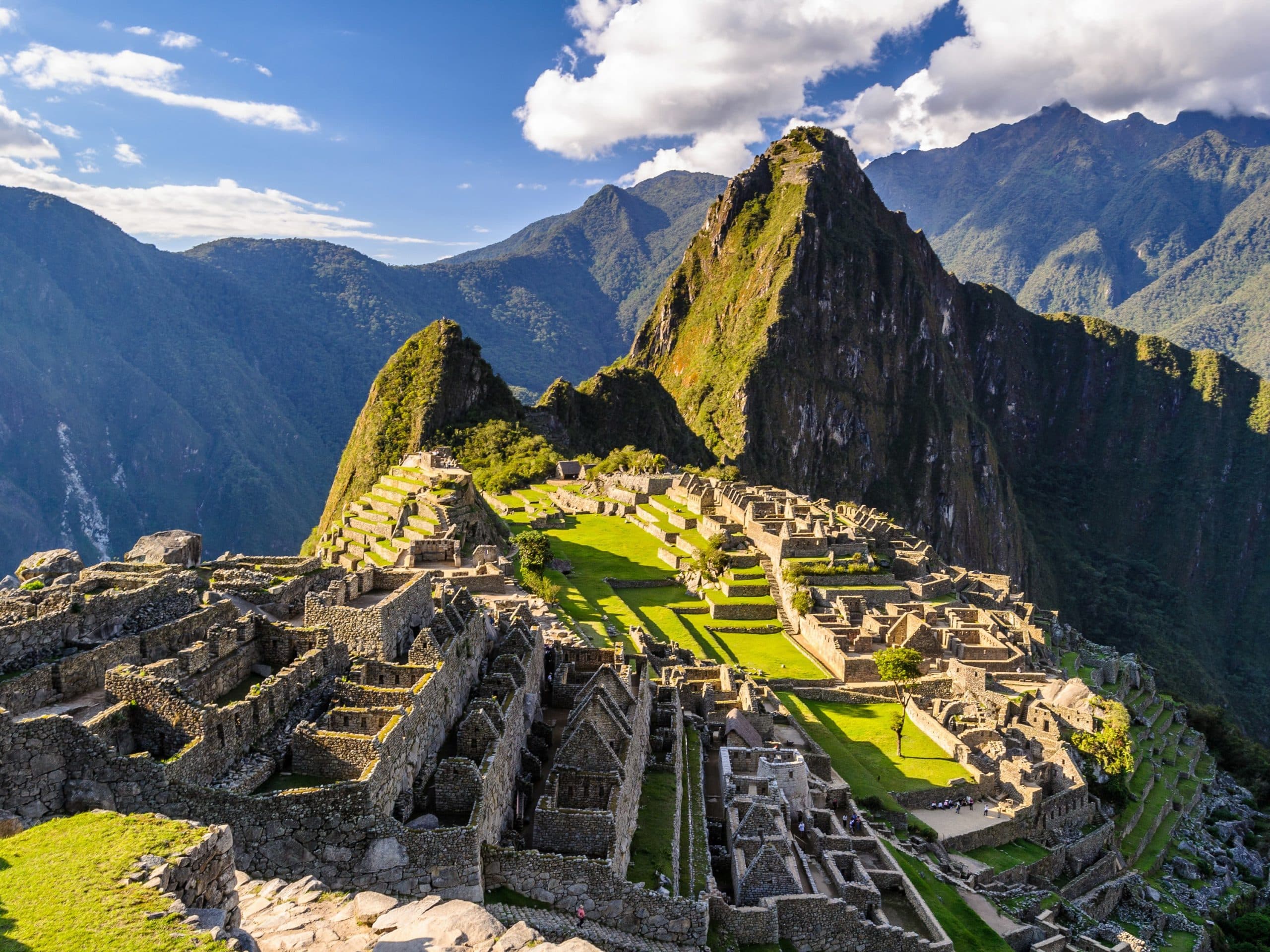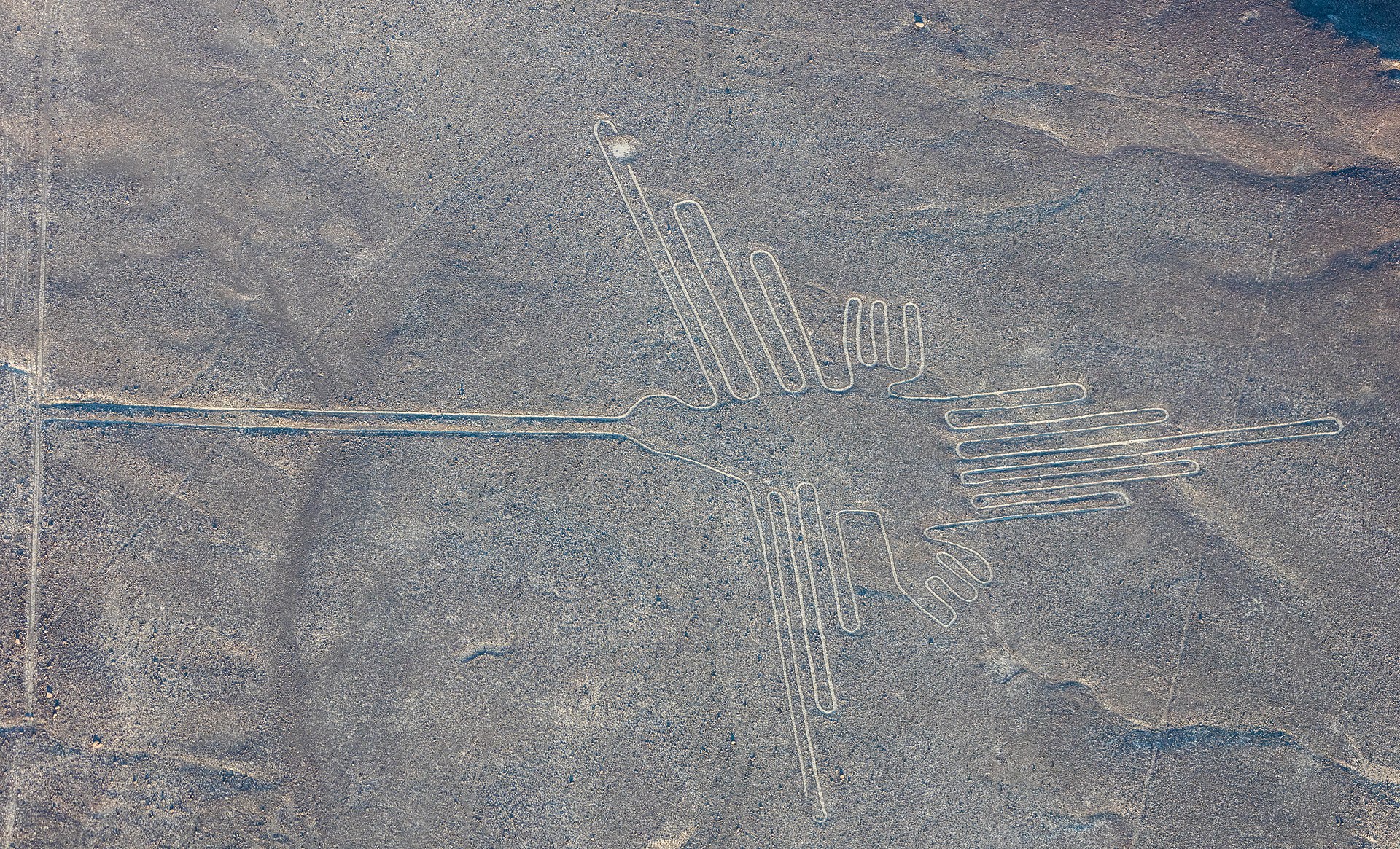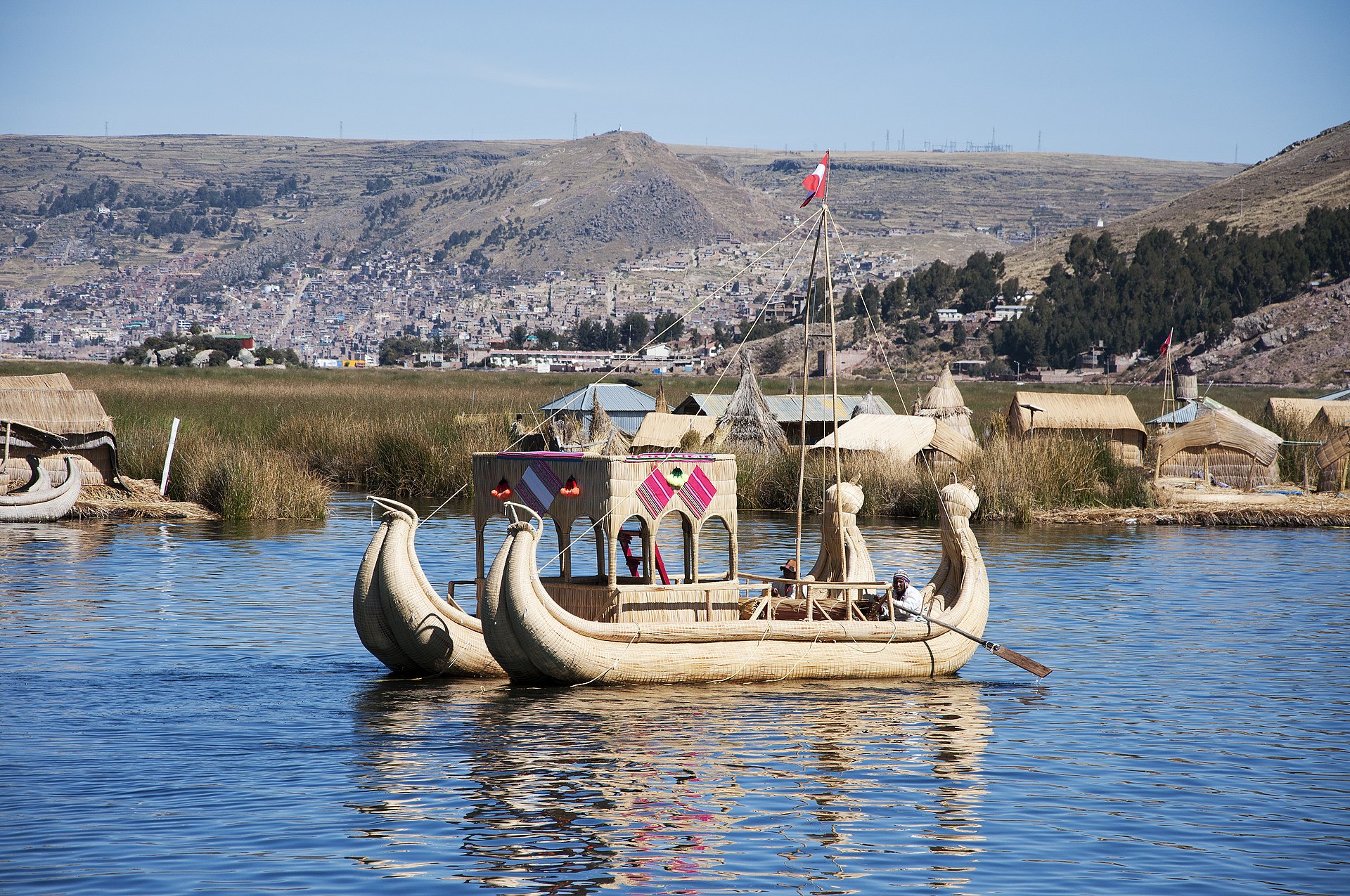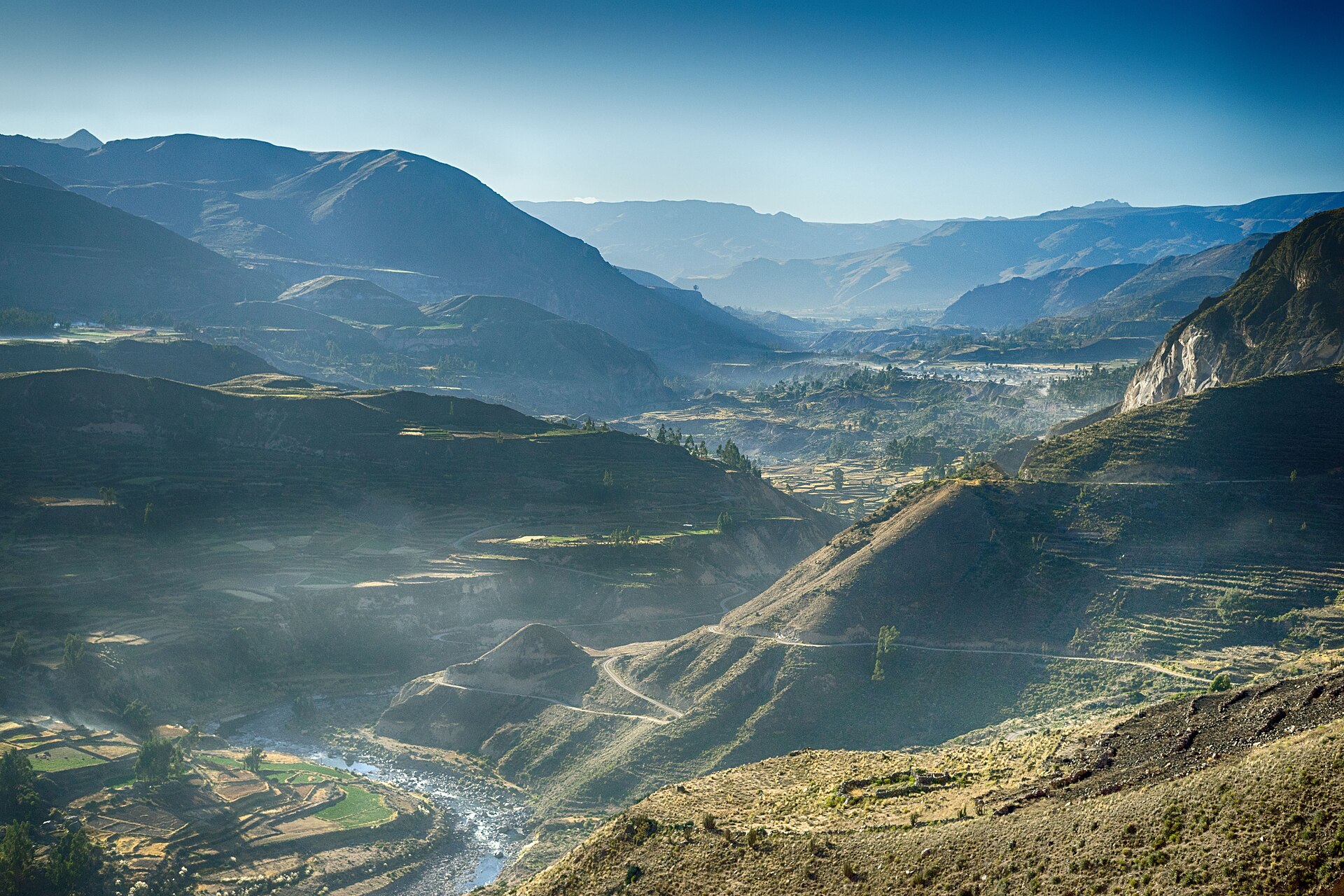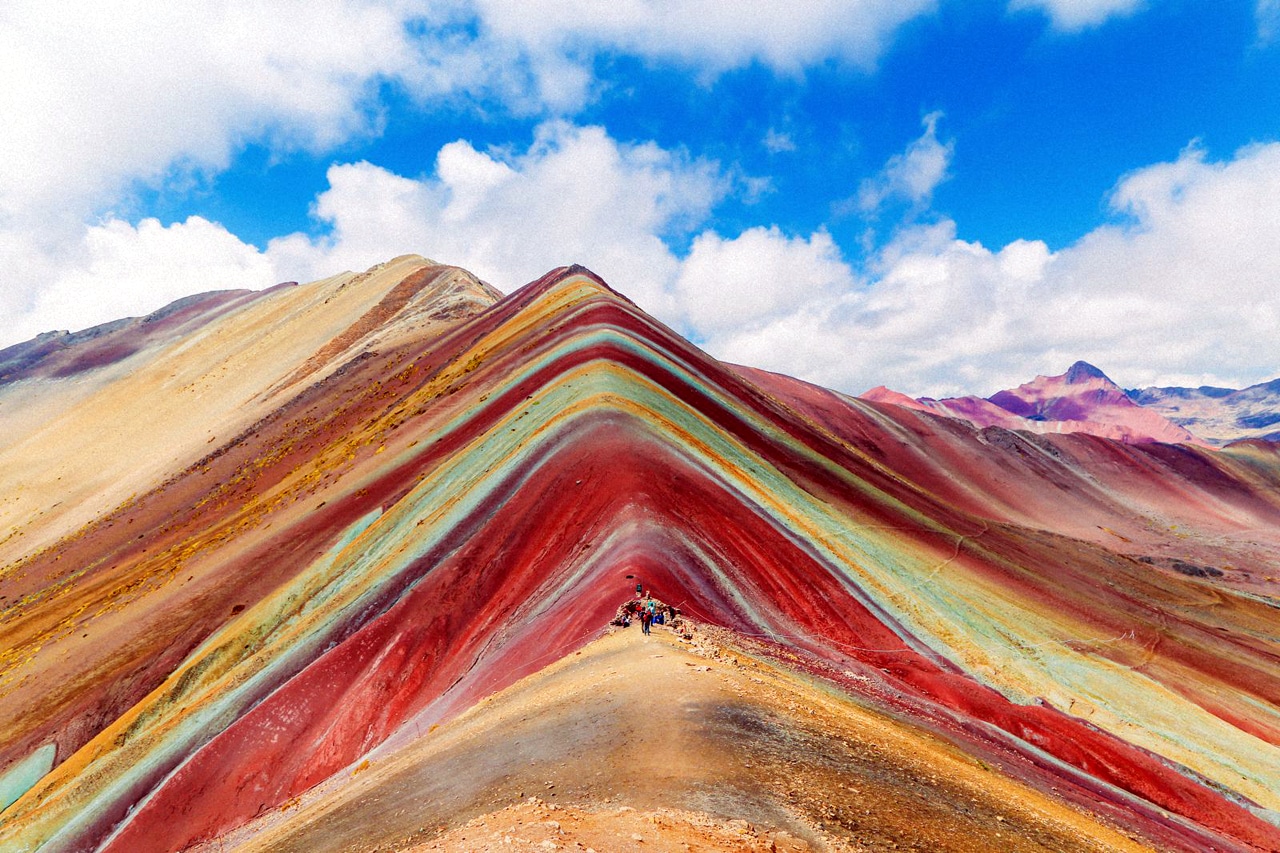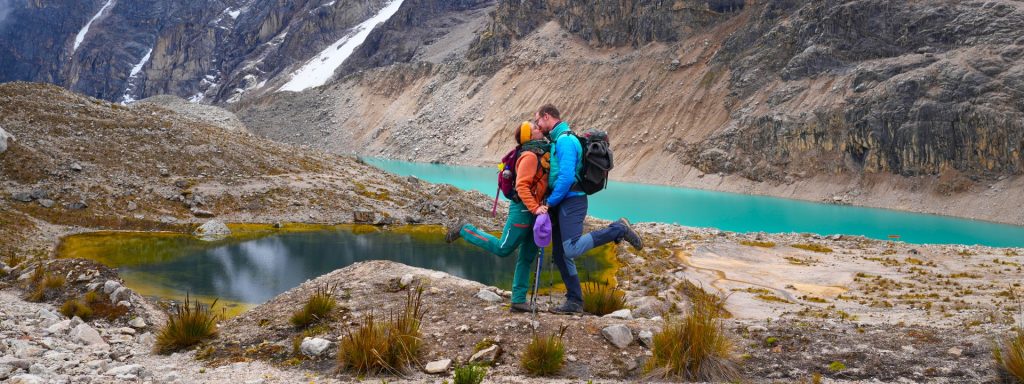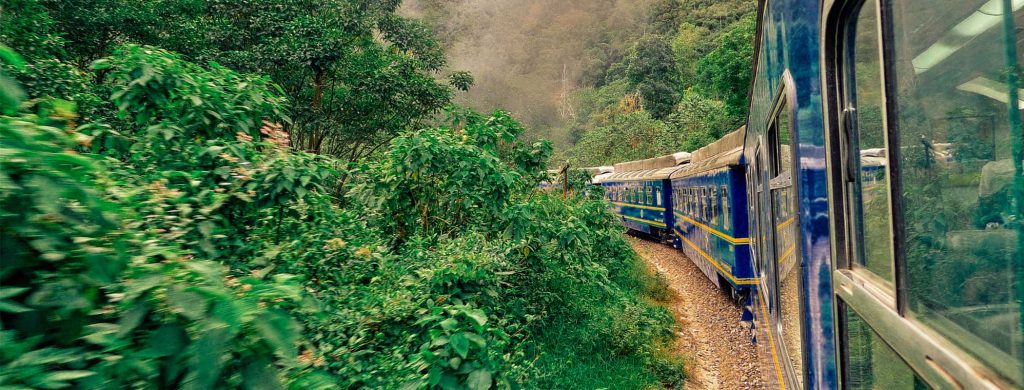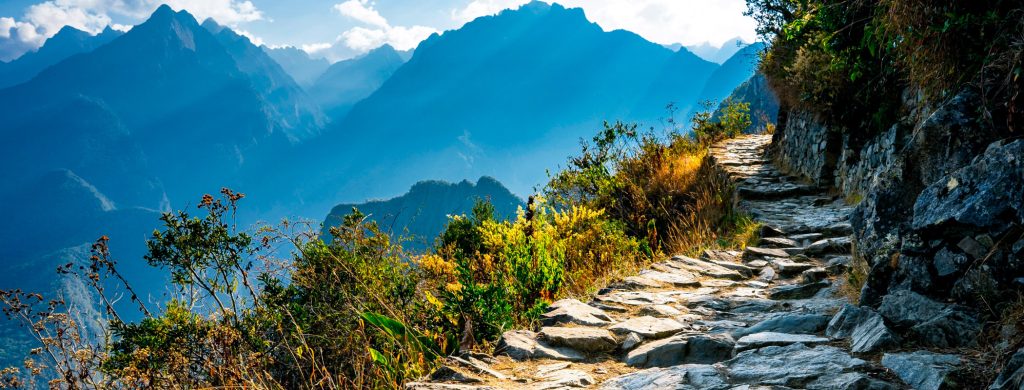Discover the 5 Wonders of Peru that you must visit at least once in your life: Machu Picchu, the Nazca Lines, Lake Titicaca, the Colca Canyon and the Seven Colours Mountain. A tour full of history, culture and unique landscapes that will take your breath away.
Table of Contents
- Introduction to the 5 Wonders of Peru
- Machu Picchu: The Inca Citadel
- Nazca Lines: Mysteries in the Desert
- Lake Titicaca: The Sacred Lake of the Andes
- Colca Canyon: Nature and Tradition in the Highlands
- Mountain of Seven Colours: The Magic of Vinicunca
- Tips for Visiting the Wonders of Peru
- Conclusion: Peru and its Wonders
Introduction to the 5 Wonders of Peru
Peru is a country of breathtaking diversity, offering a unique combination of history, culture and nature. It is home to some of the most spectacular wonders of the world.
If you’ve ever dreamed of visiting a destination full of magic and adventure, this is the perfect place for you. The 5 Wonders of Peru that we will explore here are a representative sample of all that the country has to offer.
From the iconic Machu Picchu to the enigmatic Seven Coloured Mountain, each of these destinations promises a unique and fascinating experience. Each wonder has a deep history, a vibrant culture and natural landscapes that will leave you speechless.
In this article we will guide you step by step through each of these wonders, exploring their history, cultural significance, and top tips on how to visit them to make your experience even more enriching. Get ready for an unforgettable tour of Peru’s wonders!
1. Machu Picchu: The Inca Citadel
Machu Picchu is undoubtedly the first of Peru’s wonders that comes to mind when talking about tourism in this country. Built in the 15th century by the Inca empire, this citadel stands among the Andes mountains. It is considered one of the Seven Wonders of the Modern World and draws millions of tourists to Peru each year.
The impressive archaeological complex is one of the main reasons why Peru remains a top travel destination. The majesty of its architecture, coupled with its breathtaking location high in the mountains, makes visiting Machu Picchu an unforgettable experience. It is a must-see for anyone passionate about history, culture, and ancient civilizations.
History of Machu Picchu and its importance
Machu Picchu was a ceremonial, military and religious centre for the Incas, and remains a historical enigma today. Its construction was a technical challenge, as Inca engineers created a system of terraces, water channels and cobbled paths, all in an inaccessible location.
The exact purpose of Machu Picchu remains unknown, but it is believed to have been a sacred site, perhaps a royal refuge or a centre of sun worship. Despite its monumental construction, Machu Picchu was abandoned by the Incas and remained hidden until Hiram Bingham rediscovered it in 1911. Since then, it has captured the imagination of travellers and archaeologists from all over the world.
How to get to Machu Picchu
The most popular route to Machu Picchu is via the city of Cusco, with a train journey to Aguas Calientes followed by a hike or bus to the entrance of the citadel. You can also opt to do the famous Inca Trail, a multi-day trekking route that culminates at the gateway to Machu Picchu.
If you prefer a quieter experience, there are more comfortable transport options, but be sure to take advantage of the spectacular views of the Andean landscape along the way.
Tips for visiting Machu Picchu
Ideally, book in advance and consider the best time of year to visit, avoiding the rainy season between November and March. Bring comfortable clothes, sunscreen and water, as the sun can be intense even at high altitudes. Be sure to arrive early to avoid the crowds and take advantage of the early morning hours, when the weather is usually more favourable for exploring the ruins. Also, don’t forget to bring good footwear for the hikes through the cobblestone Inca streets.
2. Nazca Lines: Mysteries in the Desert
The Nazca Lines are one of Peru’s most incredible wonders. These geometric figures and animal drawings in the Nazca desert can only be seen from the air. Their exact purpose remains a mystery, and the lines have baffled scientists and travelers for centuries.
Numerous theories have been proposed about their creation. Some suggest they relate to an astronomical calendar or were used for ceremonial rituals. Despite these theories, the true purpose of the Nazca Lines continues to be one of the world’s greatest unsolved mysteries.
History and mystery of the Nazca Lines
These lines were created between 500 BC and 500 AD, and are presumed to have had ceremonial or astronomical purposes. Their origin is shrouded in mystery.
There are theories that suggest they may have been made by an advanced civilisation with astronomical knowledge, using the stars and planets as a guide for their creations. However, the lack of concrete evidence of their use and meaning means that the Nazca Lines remain one of the world’s great archaeological enigmas.
How to see the Nazca Lines
You can take a flight to see the lines from above or visit the viewpoints set up in the area. Flights are the best option, as they allow you to appreciate the magnitude and design of the figures in a unique way. The viewing platforms, while offering a limited view, are also an economical alternative for those who prefer not to fly. The figures, which include a hummingbird, a monkey and a tree, are amazing when seen from the air and are something you will never forget.
Curious facts about the Nazca Lines
Animal figures, such as the monkey and the hummingbird, are the most popular designs. The reason behind these figures remains a mystery, and some believe they may have had a connection to nature gods or cosmic rituals. In addition, it has been proposed that the lines were intended to attract sky gods during religious rituals, based on alignment with certain astronomical events.
3. Lake Titicaca: The Sacred Lake of the Andes
Lake Titicaca is located more than 3,800 meters above sea level, making it the highest navigable lake in the world. It is considered a sacred site by the Andean people, who believe the lake is the birthplace of their ancestors and civilization.
The lake is not only a natural wonder but also a cultural treasure. It is surrounded by islands, each inhabited by communities that preserve their ancestral traditions, offering visitors a unique glimpse into ancient Andean culture.
The cultural importance of Lake Titicaca
Lake Titicaca is considered one of the most sacred places by the indigenous communities of the Altiplano. Legend has it that the first Incas, Manco Capac and Mama Ocllo, were born from its waters and were ordered to found the Inca Empire. The floating islands of the Uros, built of totora reeds, are an example of how communities have adapted their way of life to the extreme conditions here, and remain a major attraction for visitors.
How to get to Lake Titicaca
Lake Titicaca is located on the border between Peru and Bolivia. From the city of Puno, Peru, you can take boats to the floating islands and other islands in the lake.
The route to Puno is accessible by road from Cusco, and from there you can take a boat to the lake for a tour where you can learn more about the cultures that inhabit the area.
4. Colca Canyon: Nature and Tradition in the Highlands
The Colca Canyon is the second deepest canyon in the world, and is an ideal destination for nature and adventure lovers. Located in the Arequipa region, the canyon is an impressive place where you can see the flight of the condor, a symbol of Peruvian wildlife. In addition to its natural beauty, the Colca Canyon is surrounded by villages that keep their traditions and customs alive.
The Colca Canyon, one of the most remarkable wonders of Peru, offers an unforgettable experience for travelers seeking both natural beauty and cultural immersion. As the second deepest canyon in the world, its vastness and dramatic landscapes make it a unique destination.
In addition to its breathtaking views, the canyon is home to the majestic Andean condor, whose soaring flight is one of the highlights of any visit. Exploring Colca Canyon also provides an opportunity to discover local communities that have preserved their ancestral traditions, adding an authentic cultural layer to the adventure. This combination of natural wonder and cultural heritage is what makes Colca Canyon an essential stop when exploring the wonders of Peru.
How to get to the Colca Canyon
From the city of Arequipa, you can take a bus or hire a tour to reach the Colca Canyon. The trip to the viewpoint of the condors is a journey that will take you through breathtaking landscapes of mountains and agricultural terraces. Canyon hikes are also popular for those who want a more intense experience in the middle of nature.
5. Mountain of Seven Colours: The Magic of Vinicunca
The Seven Coloured Mountain, or Vinicunca, has become one of the most popular destinations for tourists visiting Peru. Its incredible mix of colours, varying from red to green, blue and yellow, create a landscape that looks like something out of another world. It is one of the country’s most impressive natural wonders.
Vinicunca, or the Seven Coloured Mountain, is undoubtedly one of the most extraordinary wonders of Peru. This stunning landscape, with its vibrant hues of red, green, yellow, and blue, offers a visual spectacle that attracts tourists from around the globe. As one of the must-see natural wonders, it captures the imagination with its unique beauty and geological formations.
To visit Vinicunca is not only to witness a beautiful spectacle, but to experience one of the most remarkable examples of Peru’s wonders, where the art of nature and the high-altitude environment create a truly unforgettable adventure.
How to get to Seven Colours Mountain
To reach the Montaña de Siete Colores, you must hike from the starting point in the village of Cusipata. The hike is challenging due to the altitude, so it is advisable to acclimatise beforehand. The trek will take you through mountain scenery and valleys, and the effort will be worth it when you reach the top and can enjoy the spectacle of colours that the mountain has to offer.
Tips for Visiting the Wonders of Peru
- Book your tickets in advance, especially for places like Machu Picchu.
- Get used to the altitude and take precautions against altitude sickness.
- Travel in comfortable clothing suitable for the weather conditions.
- Hire a local guide to learn about the history and culture of each wonder.
- Don’t forget to bring plenty of water and sunscreen.
Conclusion: Peru and its Wonders
Peru’s wonders offer a unique experience that combines history, culture and nature in a breathtaking way. Whether you explore Machu Picchu, the mysterious Lake Titicaca or the enigmatic Nazca Lines, each of these destinations will leave you with indelible memories.
Without a doubt, Peru is a place you should visit, offering a rich cultural heritage and landscapes that simply cannot be found anywhere else in the world.

